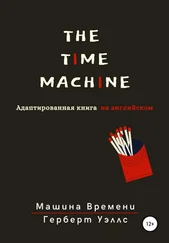Герберт Уэллс - The World Set Free
Здесь есть возможность читать онлайн «Герберт Уэллс - The World Set Free» — ознакомительный отрывок электронной книги совершенно бесплатно, а после прочтения отрывка купить полную версию. В некоторых случаях можно слушать аудио, скачать через торрент в формате fb2 и присутствует краткое содержание. Жанр: foreign_antique, foreign_prose, на английском языке. Описание произведения, (предисловие) а так же отзывы посетителей доступны на портале библиотеки ЛибКат.
- Название:The World Set Free
- Автор:
- Жанр:
- Год:неизвестен
- ISBN:нет данных
- Рейтинг книги:5 / 5. Голосов: 1
-
Избранное:Добавить в избранное
- Отзывы:
-
Ваша оценка:
- 100
- 1
- 2
- 3
- 4
- 5
The World Set Free: краткое содержание, описание и аннотация
Предлагаем к чтению аннотацию, описание, краткое содержание или предисловие (зависит от того, что написал сам автор книги «The World Set Free»). Если вы не нашли необходимую информацию о книге — напишите в комментариях, мы постараемся отыскать её.
The World Set Free — читать онлайн ознакомительный отрывок
Ниже представлен текст книги, разбитый по страницам. Система сохранения места последней прочитанной страницы, позволяет с удобством читать онлайн бесплатно книгу «The World Set Free», без необходимости каждый раз заново искать на чём Вы остановились. Поставьте закладку, и сможете в любой момент перейти на страницу, на которой закончили чтение.
Интервал:
Закладка:
How often things must have been seen and dismissed as unimportant, before the speculative eye and the moment of vision came! It was Gilbert, Queen Elizabeth’s court physician, who first puzzled his brains with rubbed amber and bits of glass and silk and shellac, and so began the quickening of the human mind to the existence of this universal presence. And even then the science of electricity remained a mere little group of curious facts for nearly two hundred years, connected perhaps with magnetism – a mere guess that – perhaps with the lightning. Frogs’ legs must have hung by copper hooks from iron railings and twitched upon countless occasions before Galvani saw them. Except for the lightning conductor, it was 250 years after Gilbert before electricity stepped out of the cabinet of scientific curiosities into the life of the common man… Then suddenly, in the half-century between 1880 and 1930, it ousted the steam-engine and took over traction, it ousted every other form of household heating, abolished distance with the perfected wireless telephone and the telephotograph…
And there was an extraordinary mental resistance to discovery and invention for at least a hundred years after the scientific revolution had begun. Each new thing made its way into practice against a scepticism that amounted at times to hostility. One writer upon these subjects gives a funny little domestic conversation that happened, he says, in the year 1898, within ten years, that is to say, of the time when the first aviators were fairly on the wing. He tells us how he sat at his desk in his study and conversed with his little boy.
His little boy was in profound trouble. He felt he had to speak very seriously to his father, and as he was a kindly little boy he did not want to do it too harshly.
This is what happened.
‘I wish, Daddy,’ he said, coming to his point, ‘that you wouldn’t write all this stuff about flying. The chaps rot me.’
‘Yes!’ said his father.
‘And old Broomie, the Head I mean, he rots me. Everybody rots me.’
‘But there is going to be flying – quite soon.’
The little boy was too well bred to say what he thought of that. ‘Anyhow,’ he said, ‘I wish you wouldn’t write about it.’
‘You’ll fly – lots of times – before you die,’ the father assured him.
The little boy looked unhappy.
The father hesitated. Then he opened a drawer and took out a blurred and under-developed photograph. ‘Come and look at this,’ he said.
The little boy came round to him. The photograph showed a stream and a meadow beyond, and some trees, and in the air a black, pencil-like object with flat wings on either side of it. It was the first record of the first apparatus heavier than air that ever maintained itself in the air by mechanical force. Across the margin was written: ‘Here we go up, up, up – from S. P. Langley, Smithsonian Institution, Washington.’
The father watched the effect of this reassuring document upon his son. ‘Well?’ he said.
‘That,’ said the schoolboy, after reflection, ‘is only a model.’
‘Model to-day, man to-morrow.’
The boy seemed divided in his allegiance. Then he decided for what he believed quite firmly to be omniscience. ‘But old Broomie,’ he said, ‘he told all the boys in his class only yesterday, “no man will ever fly.” No one, he says, who has ever shot grouse or pheasants on the wing would ever believe anything of the sort…’
Yet that boy lived to fly across the Atlantic and edit his father’s reminiscences.
At the close of the nineteenth century as a multitude of passages in the literature of that time witness, it was thought that the fact that man had at last had successful and profitable dealings with the steam that scalded him and the electricity that flashed and banged about the sky at him, was an amazing and perhaps a culminating exercise of his intelligence and his intellectual courage. The air of ‘Nunc Dimittis’ sounds in same of these writings. ‘The great things are discovered,’ wrote Gerald Brown in his summary of the nineteenth century. ‘For us there remains little but the working out of detail.’ The spirit of the seeker was still rare in the world; education was unskilled, unstimulating, scholarly, and but little valued, and few people even then could have realised that Science was still but the flimsiest of trial sketches and discovery scarcely beginning. No one seems to have been afraid of science and its possibilities. Yet now where there had been but a score or so of seekers, there were many thousands, and for one needle of speculation that had been probing the curtain of appearances in 1800, there were now hundreds. And already Chemistry, which had been content with her atoms and molecules for the better part of a century, was preparing herself for that vast next stride that was to revolutionise the whole life of man from top to bottom.
One realises how crude was the science of that time when one considers the case of the composition of air. This was determined by that strange genius and recluse, that man of mystery, that disembowelled intelligence, Henry Cavendish, towards the end of the eighteenth century. So far as he was concerned the work was admirably done. He separated all the known ingredients of the air with a precision altogether remarkable; he even put it upon record that he had some doubt about the purity of the nitrogen. For more than a hundred years his determination was repeated by chemists all the world over, his apparatus was treasured in London, he became, as they used to say, ‘classic,’ and always, at every one of the innumerable repetitions of his experiment, that sly element argon was hiding among the nitrogen (and with a little helium and traces of other substances, and indeed all the hints that might have led to the new departures of the twentieth-century chemistry), and every time it slipped unobserved through the professorial fingers that repeated his procedure.
Is it any wonder then with this margin of inaccuracy, that up to the very dawn of the twentieth-century scientific discovery was still rather a procession of happy accidents than an orderly conquest of nature?
Yet the spirit of seeking was spreading steadily through the world. Even the schoolmaster could not check it. For the mere handful who grew up to feel wonder and curiosity about the secrets of nature in the nineteenth century, there were now, at the beginning of the twentieth, myriads escaping from the limitations of intellectual routine and the habitual life, in Europe, in America, North and South, in Japan, in China, and all about the world.
It was in 1910 that the parents of young Holsten, who was to be called by a whole generation of scientific men, ‘the greatest of European chemists,’ were staying in a villa near Santo Domenico, between Fiesole and Florence. He was then only fifteen, but he was already distinguished as a mathematician and possessed by a savage appetite to understand. He had been particularly attracted by the mystery of phosphorescence and its apparent unrelatedness to every other source of light. He was to tell afterwards in his reminiscences how he watched the fireflies drifting and glowing among the dark trees in the garden of the villa under the warm blue night sky of Italy; how he caught and kept them in cages, dissected them, first studying the general anatomy of insects very elaborately, and how he began to experiment with the effect of various gases and varying temperature upon their light. Then the chance present of a little scientific toy invented by Sir William Crookes, a toy called the spinthariscope, on which radium particles impinge upon sulphide of zinc and make it luminous, induced him to associate the two sets of phenomena. It was a happy association for his inquiries. It was a rare and fortunate thing, too, that any one with the mathematical gift should have been taken by these curiosities.
Читать дальшеИнтервал:
Закладка:
Похожие книги на «The World Set Free»
Представляем Вашему вниманию похожие книги на «The World Set Free» списком для выбора. Мы отобрали схожую по названию и смыслу литературу в надежде предоставить читателям больше вариантов отыскать новые, интересные, ещё непрочитанные произведения.
Обсуждение, отзывы о книге «The World Set Free» и просто собственные мнения читателей. Оставьте ваши комментарии, напишите, что Вы думаете о произведении, его смысле или главных героях. Укажите что конкретно понравилось, а что нет, и почему Вы так считаете.


![Герберт Уэллс - The War of the Worlds [С англо-русским словарем]](/books/26611/gerbert-uells-the-war-of-the-worlds-s-anglo-thumb.webp)









